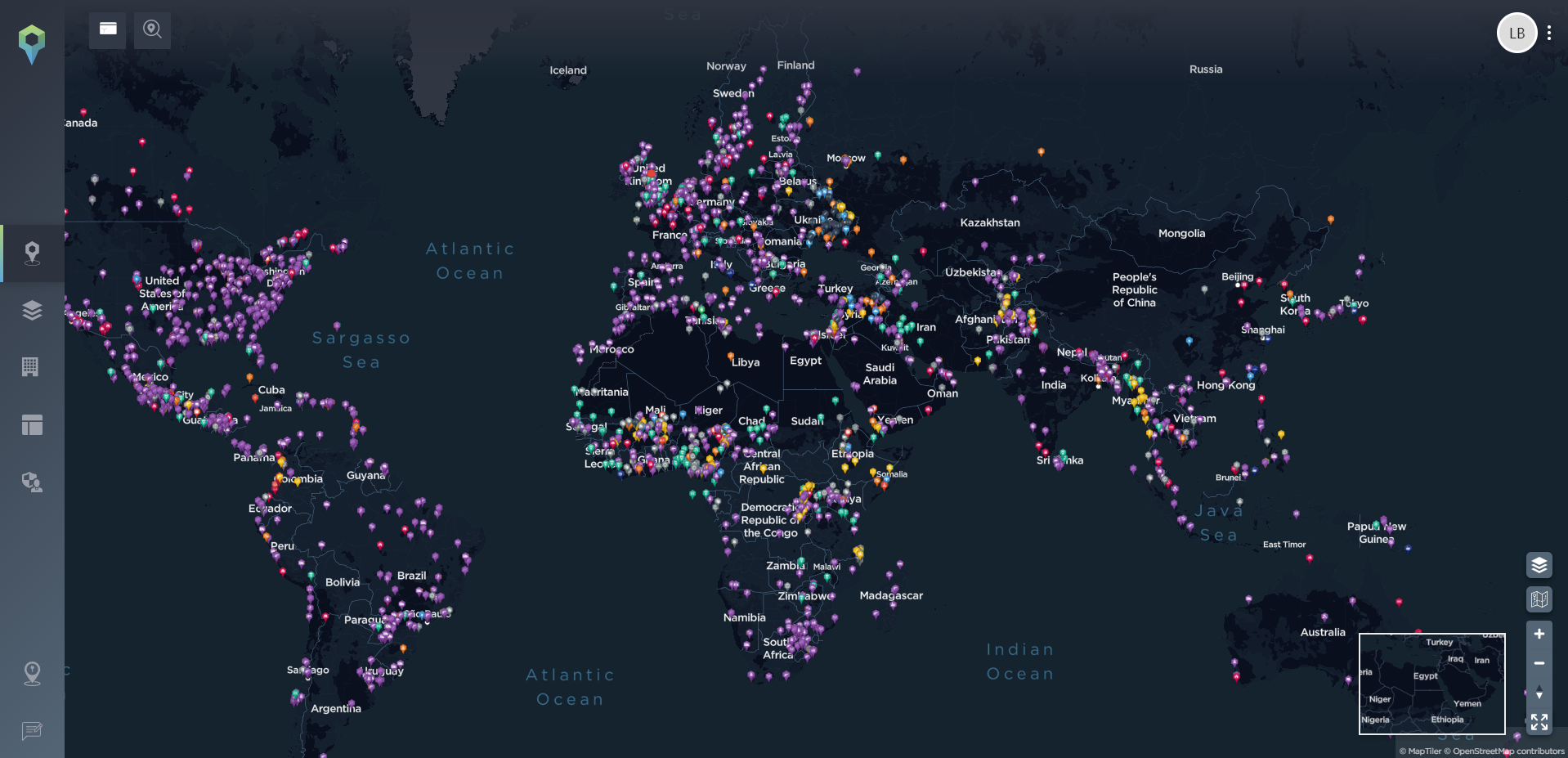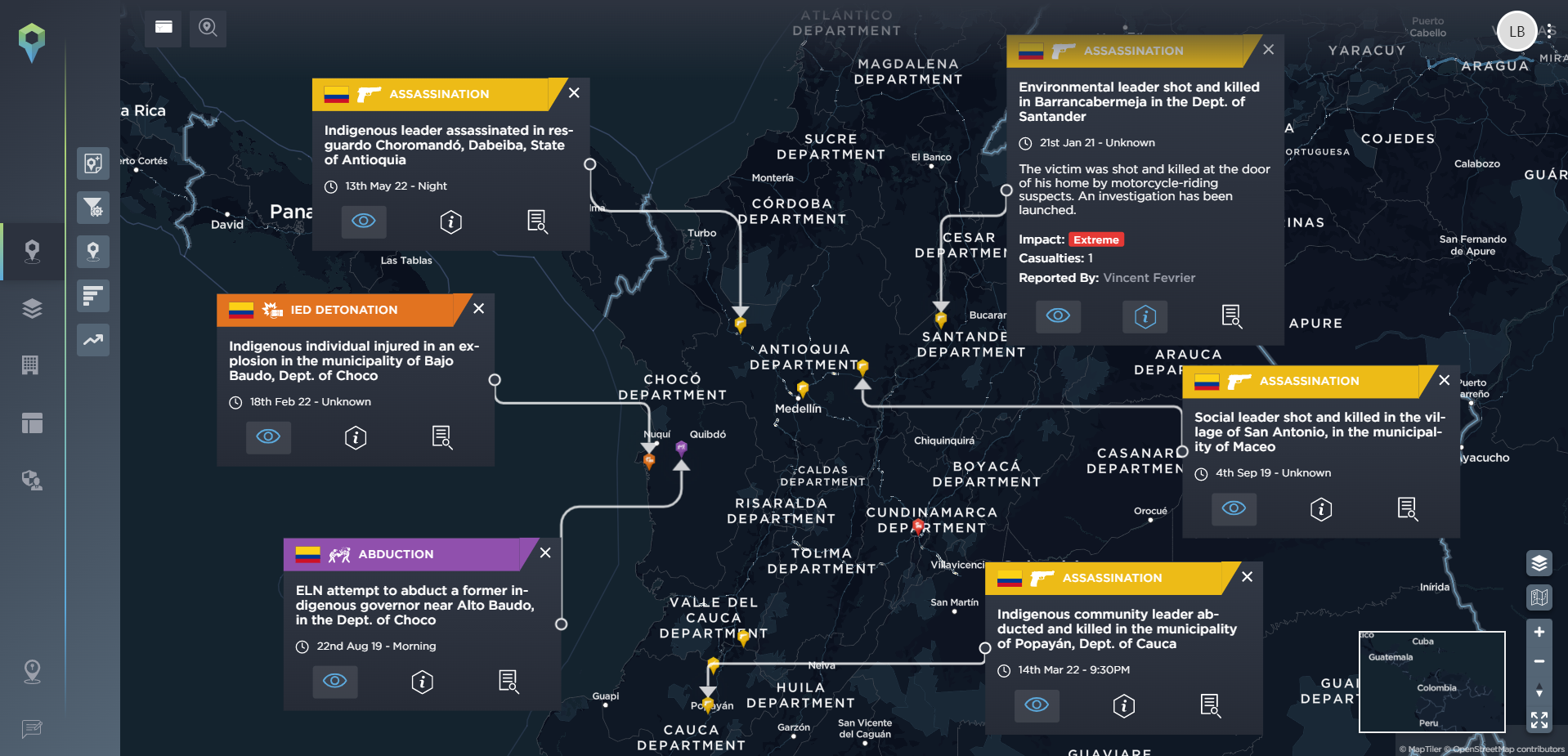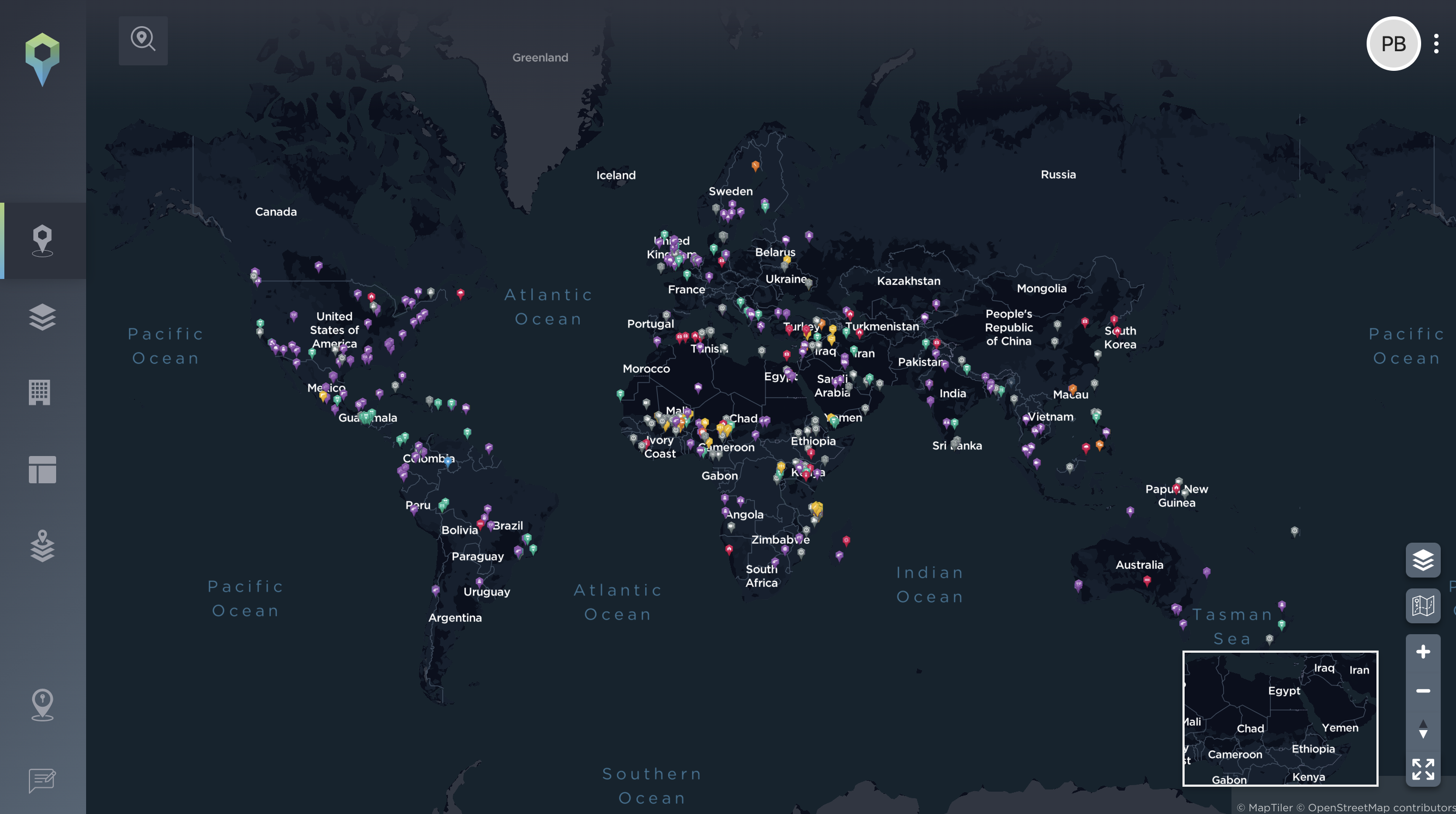Brazil election 2022: Polarisation and security concerns after first round results
The polarising Brazil election goes to a second round run-off, following a better than expected showing from incumbent President Jair Bolsonaro.
Brazil Election results: First round
The first round of Brazil’s election on 2nd October ended with Luiz Inácio Lula – the leader of the left-wing Worker’s Party (PT) – obtaining 48.5% of votes, against right-wing President Jair Bolsonaro’s 43.2%. Since no candidate reached the 50% threshold in the first round, Lula and Bolsonaro will face off in a second round on 30th October.
The results of the first round show that the predictions of pollsters were far off. Lula’s lead over Bolsonaro was projected to be 10-15%, but ended up only being around 5%. One of the main reasons for this is that Bolsonaro’s supporters are highly sceptical of the polls, and therefore do not tend to participate in vote intention surveys. However, Bolsonaro also appears to have made significant gains in the end, mostly from supporters of distant third- and fourth-place candidates, many of whom chose to back one of the two frontrunners at the last minute instead. The endorsements of candidates such as Simone Tebet, who secured 4% of votes, and Ciro Gomes, who obtained 3%, will be crucial in determining the outcome of the presidential race.
However, perhaps more important are the implications for the balance of power in Brazil’s Congress. The results of the first round mean that right-leaning parties allied with Bolsonaro will control most of the seats in both chambers. Consequently, if Bolsonaro manages to win the second round, he will be able to fully pursue his agenda, whilst in the case of a victory for Lula, the conservative majority in Congress will guarantee instability for the new administration and prevent it from passing key legislation.
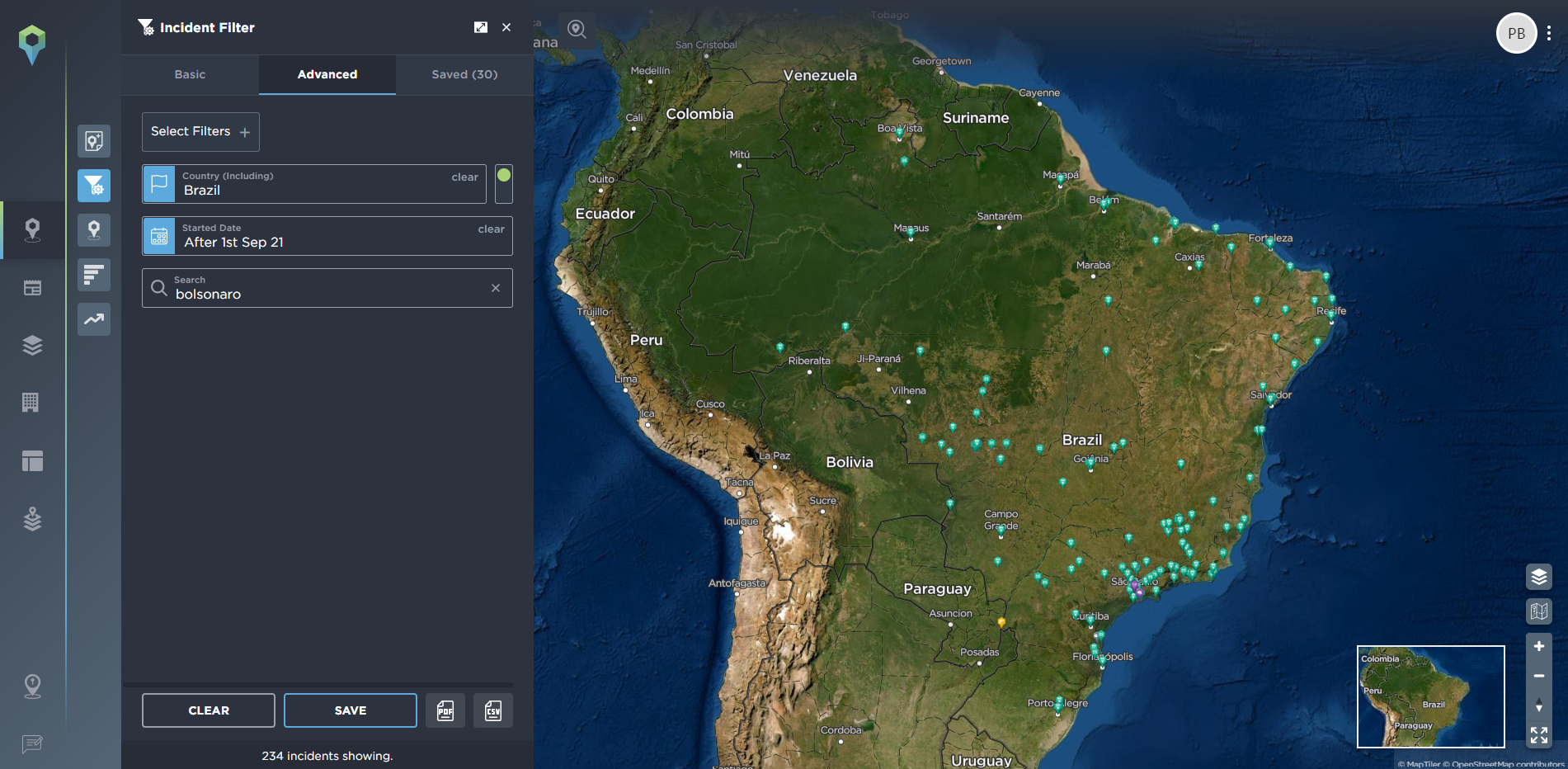
Bolsonaro is an incredibly divisive figure in Brazil. In the last year alone there have been hundreds of incidents related to pro- and anti-Bolsonaro protesters [image source: Intelligence Fusion]
Second round: The upcoming run-off election
Brazilians will vote again at the end of the month to make a final decision between Lula and Bolsonaro. Although Lula is still favoured in the polls, the results of this week show that the election is far too close to call, with enough time remaining for each candidate to tip the balance. The upcoming head-to-head debates will be decisive moments that give new insights into the potential outcome. In the meantime, polarisation is likely to increase, with demonstrations and political violence as likely consequences.
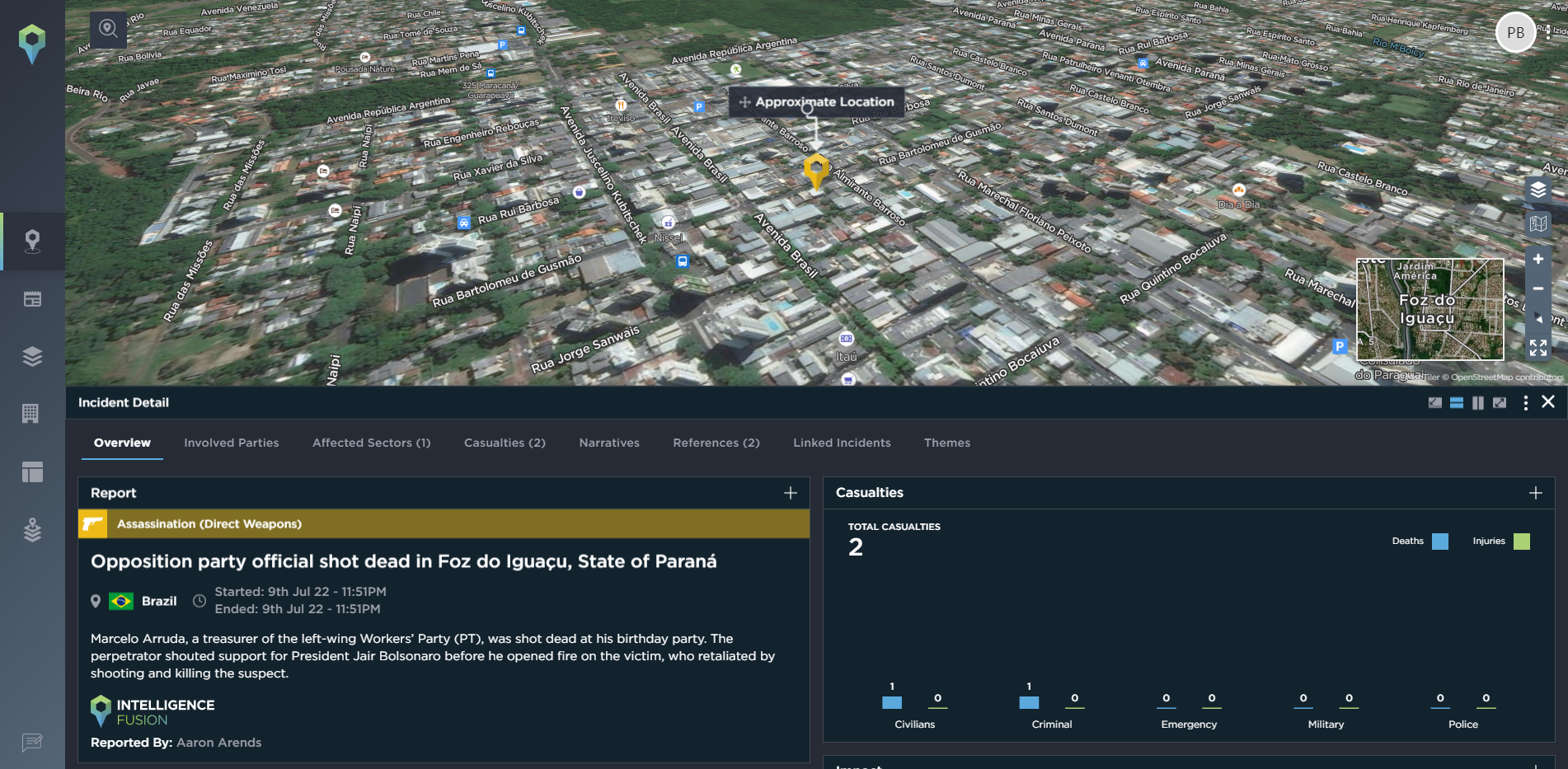
Political violence is a real concern in the wake of the Brazil election. There have already been incidents of violence in the run-up to the election, including the killing of an opposition party official [image source: Intelligence Fusion]
Brazil’s polarisation might culminate when the final results of a close election are contested, a scenario that has been feared for over a year now. Bolsonaro has frequently sowed doubt about Brazil’s electronic voting system, the Supreme Court justices overseeing the election, and the pollsters. Bolsonaro’s critics often compare him to Donald Trump and even fear a January 6th-type scenario if he loses, with some going so far as to claim that Bolsonaro has the ability to orchestrate a coup with the help of the military. These fears are not unfounded, since Bolsonaro has repeatedly stated that he will not accept defeat; “Only God will take me out of Brasília,” he told a crowd of supporters last year, in addition to describing the military as “political beings” who would support him in the election. However, because Bolsonaro’s attacks on Brazil’s democratic institutions came so early, the judiciary and civil society have had enough time to shore up trust in the integrity of the vote. Additionally, Brazil’s military leadership has made it very clear that they will respect the results of the election, making the worst-case scenario of a coup extremely unlikely.
Despite this reassurance, recent political rallies have shown that both candidates have the ability to fill the streets of every major city in Brazil with passionate supporters. Whatever the outcome may be, localised unrest and demonstrations will be almost inevitable following the election. Whilst aggrieved Bolsonaro supporters may block highways, or target state buildings, such as the Supreme Court, Congress and the TSE in Brasília, disappointed Lula supporters could disrupt traffic on main avenues such as Avenida Paulista in São Paulo. In the case of such demonstrations, Brazil’s security forces have been instructed to contain them carefully, in order to avoid widespread social unrest.
The results of the election are expected to be announced around 20:00 local time on 30th October, when thousands of people are planning to gather in central Rio de Janeiro and Sao Paulo.
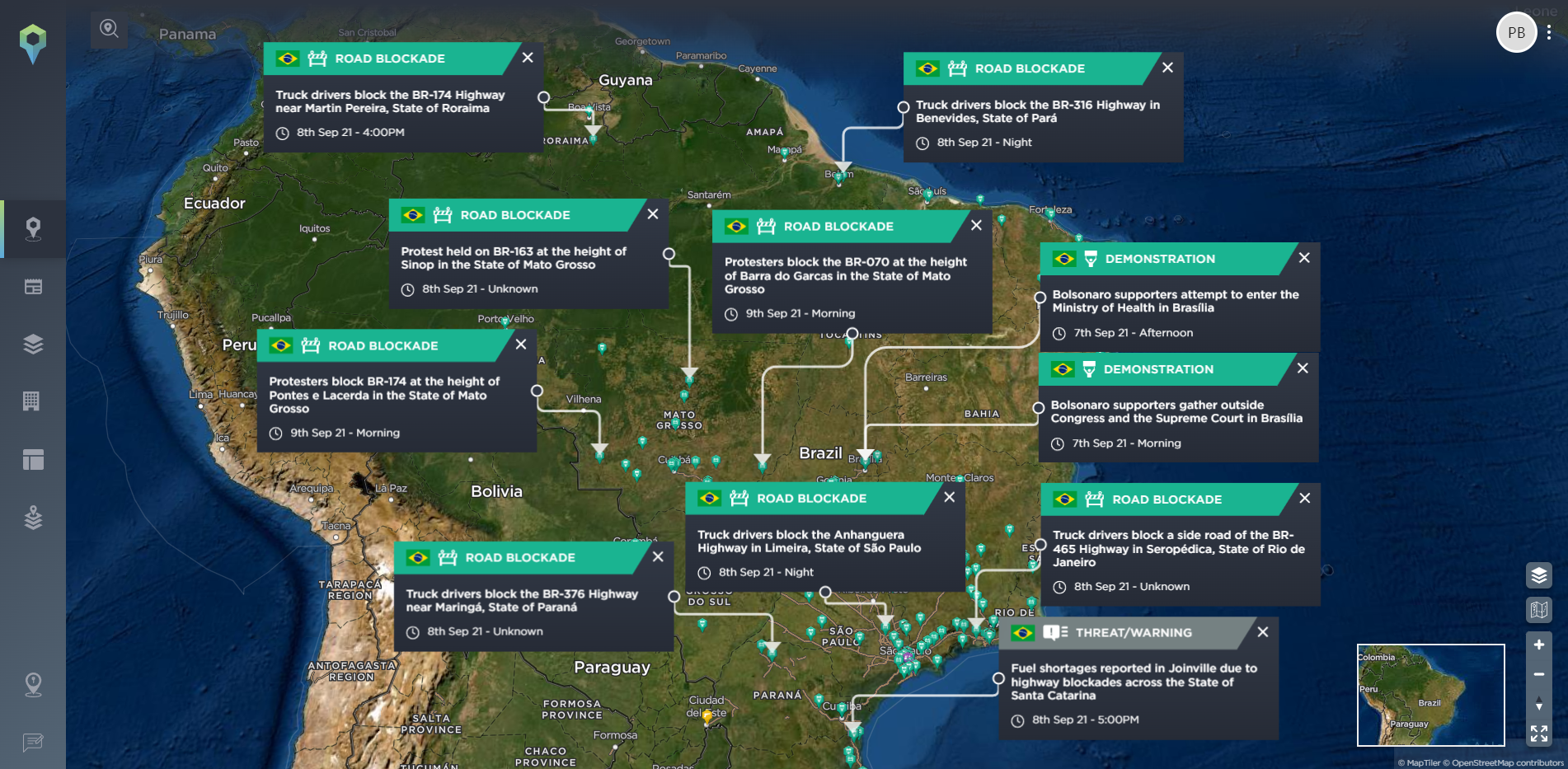
Pro-Bolsonaro protesters have blocked roads and targeted public buildings in previous protests [image source: Intelligence Fusion]
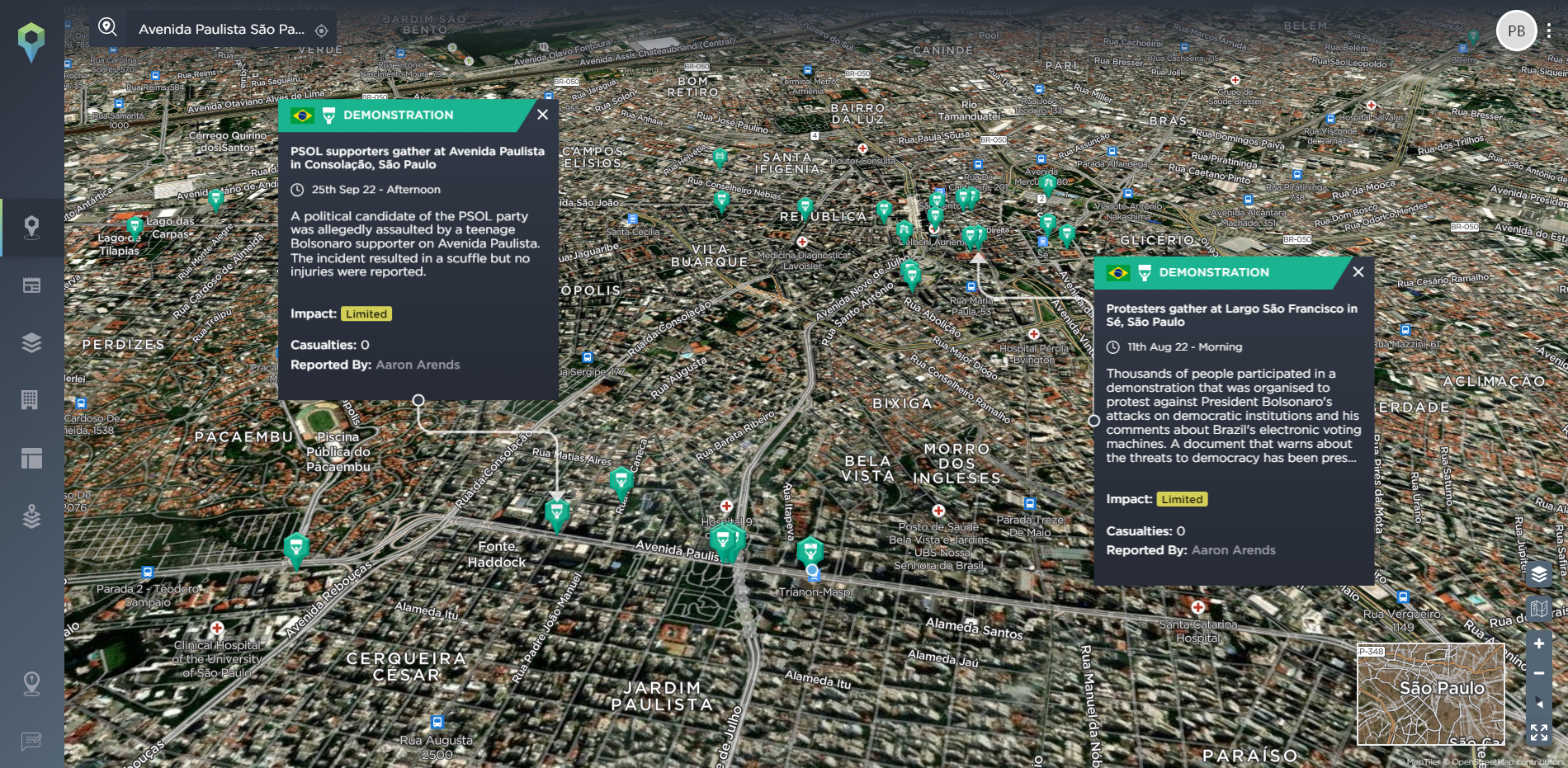
Anti-Bolsonaro protesters have repeatedly carried out large protest marches in places such as Avenida Paulista in Sao Paulo [image source: Intelligence Fusion]
Visions of the future
Lula and Bolsonaro have starkly different visions of Brazil’s future. When it comes to the environment, Lula promises new climate policies and a ‘Green New Deal’ for the Amazon, which includes the creation of a Ministry of Indigenous Affairs, whilst Bolsonaro claims indigenous people “hold Brazil back”. Instead, he wants to continue to open up the Amazon to economic activity and connect Brazil’s interior. When it comes to crime, Lula wants to reform Brazil’s security forces, which are frequently accused of extrajudicial killings, whilst Bolsonaro claims his funding of the security forces has led to a 15-year low in the national murder rate. Despite deforestation soaring and organised crime gaining ground, the most important topic of the election has proven to be the economy.
Brazilians have seen a widespread decline in the quality of life following the Covid-19 pandemic. The day-to-day economic realities people face will be at the forefront of their minds when they cast their final vote. Both candidates are promising to revive Brazil’s economy, but are proposing different solutions. Where Bolsonaro wants to continue his push for the free market and deregulation, Lula wants to put the state back at the centre of the economy and repeat the approach of his previous presidency, which relied on government spending. Whoever the next president may be, high interest rates and an unfavourable global economic outlook will make it difficult for the winner to live up to their campaign promises.
Regardless of the winner, then, when the results come through on the night of 30th October, it is highly likely that they will be met with unrest and anger by followers of the losing side. Violence and clashes between both sets of supporters, and with security forces, are a distinct possibility – not just in the wake of the results, but in the lead-up to the vote, too. With such a polarised election, between candidates with such differing visions for the country, and a febrile political climate, such incidents are likely to occur.
At Intelligence Fusion, we will be monitoring the situation in Brazil closely, as part of our global intelligence coverage, where we map more than 18,000 near-real-time security threats every month. To learn more about the work we do, how we can help your organisation, and to get a free demonstration of our threat intelligence platform, book some time with a member of our team today.

